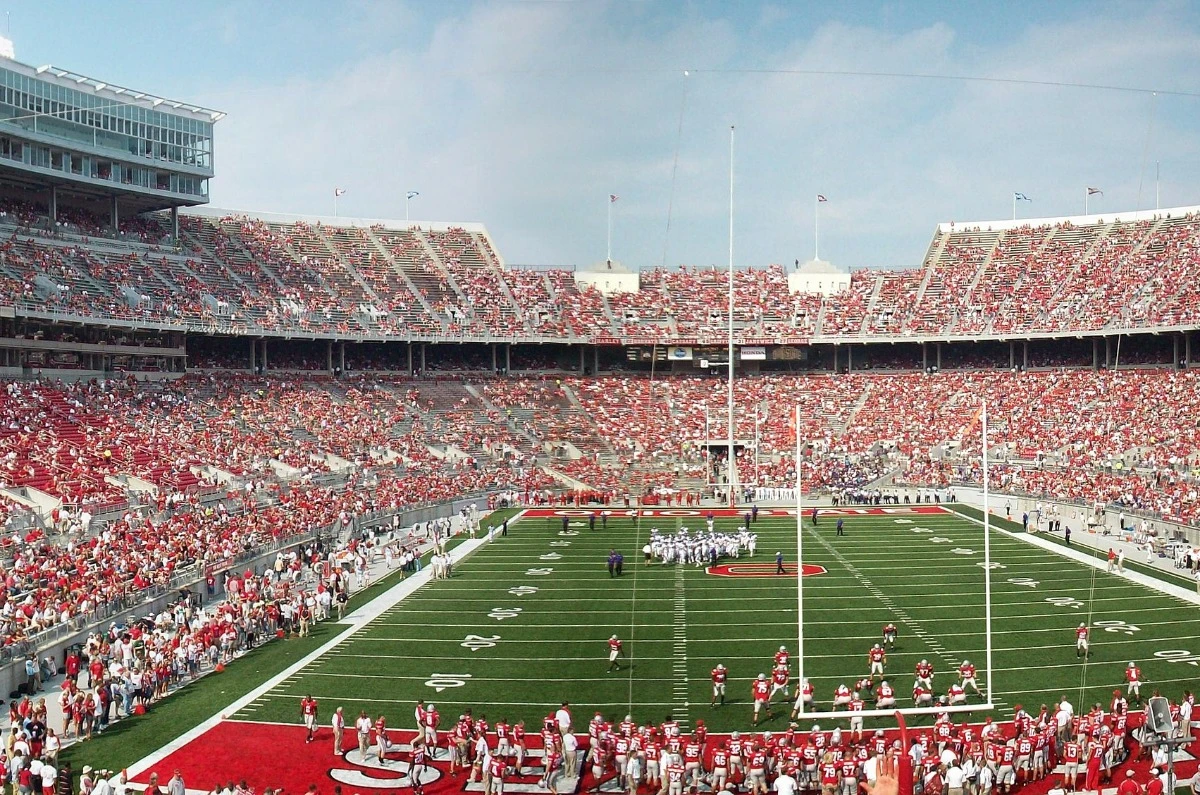Ohio has new way to help college athletes deal with harassment

The new programme, called ‘More than a Bet’, is designed to add another way for student-athletes and coaches to help stop harassment. The site features a photo of a college football player and the words “I’m more than a bet”.
It offers education on how coaches can safely get involved when college athletes are being harassed by a gambler or a fan who doesn’t gamble. It also provides a place for fans of college or pro teams to sign up and get guidance on what to do to help stop athlete harassment.
“These young athletes are more than a bet,” Tom Stickrath, chairman of the Ohio Casino Control Commission (OCCC), said via press release. “The mental toll of online harassment is unacceptable. By learning about the issue and supporting student-athletes, we can change the narrative.”
Ohio and West Virginia both have laws or regulations in place to punish harassers. Wyoming regulators have also discussed such a ban.
College athletes are at risk
The NCAA previously reported that one in three high-profile student-athletes receive messages from bettors. The vast majority (90%) of the harassment is via social media. During the NCAA tournament, North Carolina basketball player Armando Bacot tweeted and talked about harassment he faced.
In Ohio, Cleveland Cavaliers coach JB Bickerstaff earlier this year publicly spoke about being harassed.
He said that there have been instances in which bettors found his phone number. Harassers were “sending me crazy messages about where I live and my kids and all of that stuff, so it is a dangerous game and a fine line that we’re walking for sure.”
The NCAA has asked legal betting states to ban college-player prop bets to limit athletes’ exposure. Multiple states, including Ohio and Massachusetts, already had bans on such bets in place. But additional states, including Louisiana, have instituted bans in the last year. It’s not clear, however, as Wyoming regulators discussed, whether banning college prop bets would curtail harassment.
At the National Council of Legislators from Gambling States (NCLGCS) conference in July, Clint Hangebrauck, the NCAA’s managing director of enterprise risk management, said a “clear and present danger to the safety and well-being of our student athletes” exists.
Not all of the harassment is related to betting. The NCAA reports that 15%-25% of athlete abuse around sports is betting-related.
Ohio has a big RG and PG toolchest
More than a Bet is just one of a bevy of tools that the OCCC has in place to promote responsible gaming and help combat problem gambling. At the National Council on Problem Gambling (NCPG) conference in July, OCCC director of operations and responsible gambling Amanda Blackford outlined other programmes the state has recently added.
Among them, the OCCC has contracted with GamBan, which can block up to 80,000 illegal gambling and social gambling sites. It also has a voluntary exclusion website called Time Out Ohio and works with RecoverMe, which offered “self-help cognitive therapy”.
Statewide mobile and retail sports betting were legalised in Ohio in December 2021, and operators went live on 1 January 2023. Prior to that, there were land-based casinos in Ohio and Blackford said that most responsible and problem gambling services were built around the physical casino culture. Since wagering went live, the state has brought many existing and new services online.
“We were in a largely land-based environment, so that can mean isolation,” she said on an NCPG panel. “We knew illegal gaming was happening. With more access comes more problems. We weren’t in a place that we had a lot of mobile support.”
The OCCC reacted by moving many of its services online for easier access and more complete coverage across the state.
Blackford said that Ohio has “county-based mental health services”. But many counties don’t have anyone with problem gambling experience, so those with gambling issues “were left in the dust”.
The OCCC now offers statewide telehealth services for problem gamblers.
